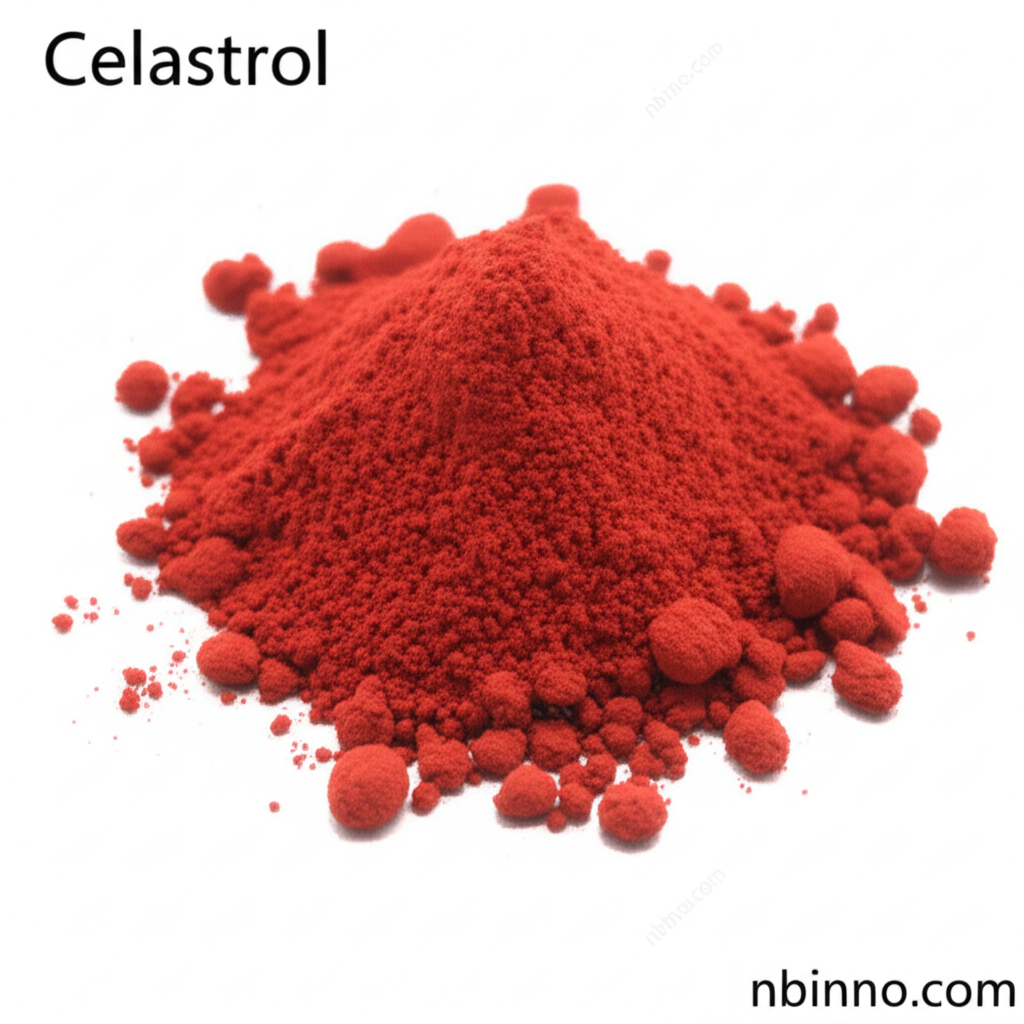Celastrol: A Potent Proteasome Inhibitor for Cancer Therapy and Research
Explore the multifaceted applications and biological mechanisms of Celastrol in groundbreaking scientific research and therapeutic development.
Get a Quote & SampleProduct Core Value

Celastrol
Celastrol is a naturally derived triterpenoid compound exhibiting significant pharmacological activities, particularly as a potent proteasome inhibitor. Its ability to disrupt cellular protein degradation pathways makes it a valuable agent in cancer therapy and biological studies, inducing apoptosis and modulating key signaling cascades.
- Discover the anticancer mechanism of Celastrol by inhibiting proteasome activity, a crucial process in cancer cell survival.
- Understand how celastrol induces apoptosis and autophagy, offering new avenues for targeted cancer treatments.
- Learn about the role of celastrol in modulating ER stress and its connection to cancer cell death, a key area in celastrol research applications.
- Explore the complex cellular signaling pathways influenced by celastrol, including the critical involvement of GSK3beta in its therapeutic effects.
Key Advantages Offered
Potent Proteasome Inhibition
Celastrol effectively inhibits the chymotrypsin-like activity of proteasomes, a vital target for many cancer therapies, impacting protein homeostasis within cancer cells.
Induction of Cell Death Pathways
The compound robustly induces apoptosis and autophagy in cancer cells, offering a dual mechanism for combating malignant growth and exploring celastrol anticancer mechanism.
Anti-inflammatory and Antioxidant Properties
Beyond its anticancer effects, Celastrol also possesses significant anti-inflammatory and antioxidant properties, contributing to its broad therapeutic potential.
Key Applications
Cancer Therapy Research
Investigate Celastrol's potential as an anticancer agent, focusing on its ability to suppress tumor growth and induce apoptosis, crucial for buy celastrol online queries.
Proteasome Inhibition Studies
Utilize Celastrol in research settings to understand the intricacies of the ubiquitin-proteasome system and its role in various cellular processes.
Drug Development and Screening
Employ Celastrol as a reference compound or lead molecule in the development of novel proteasome inhibitors and anticancer drugs.
Cellular Signaling Pathway Analysis
Study the complex signaling networks influenced by Celastrol, particularly its role in ER stress and GSK3beta activation, essential for understanding celastrol research applications.
